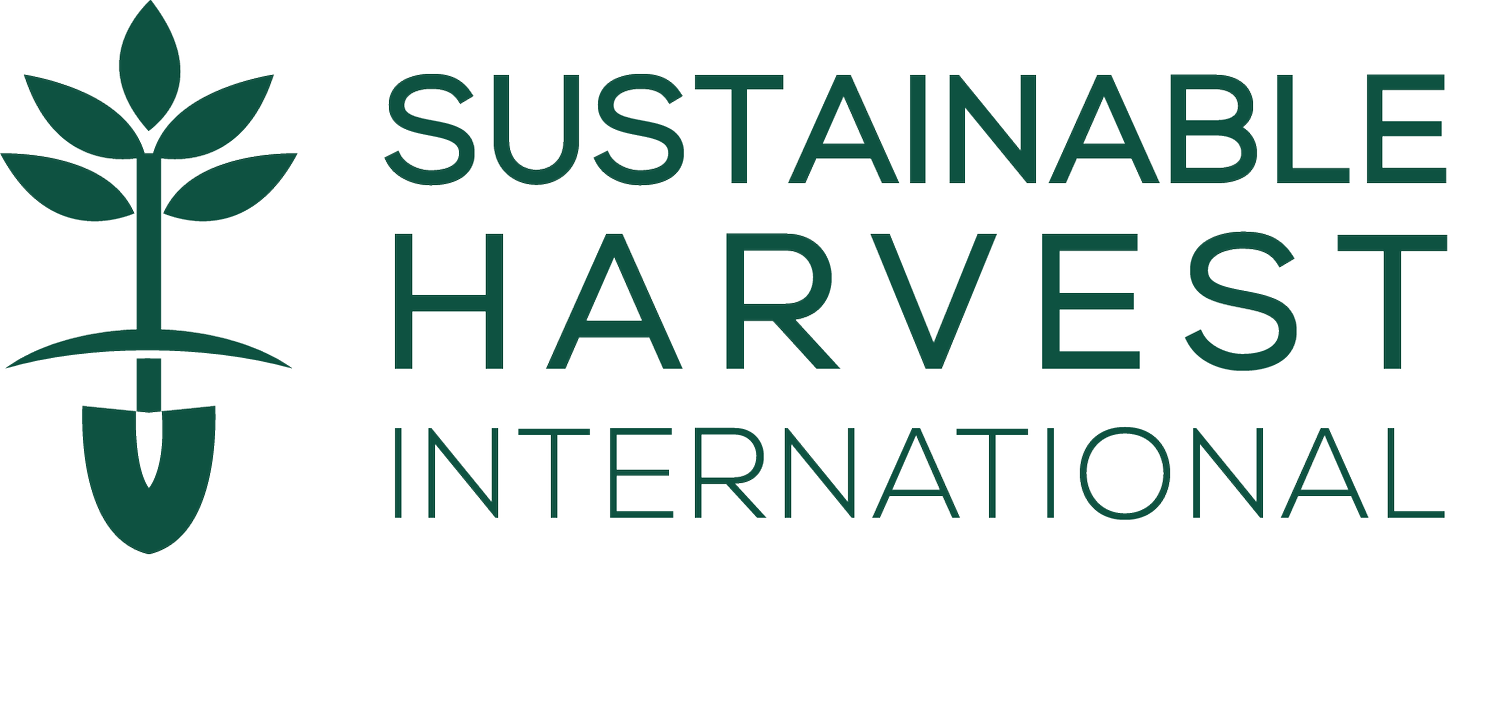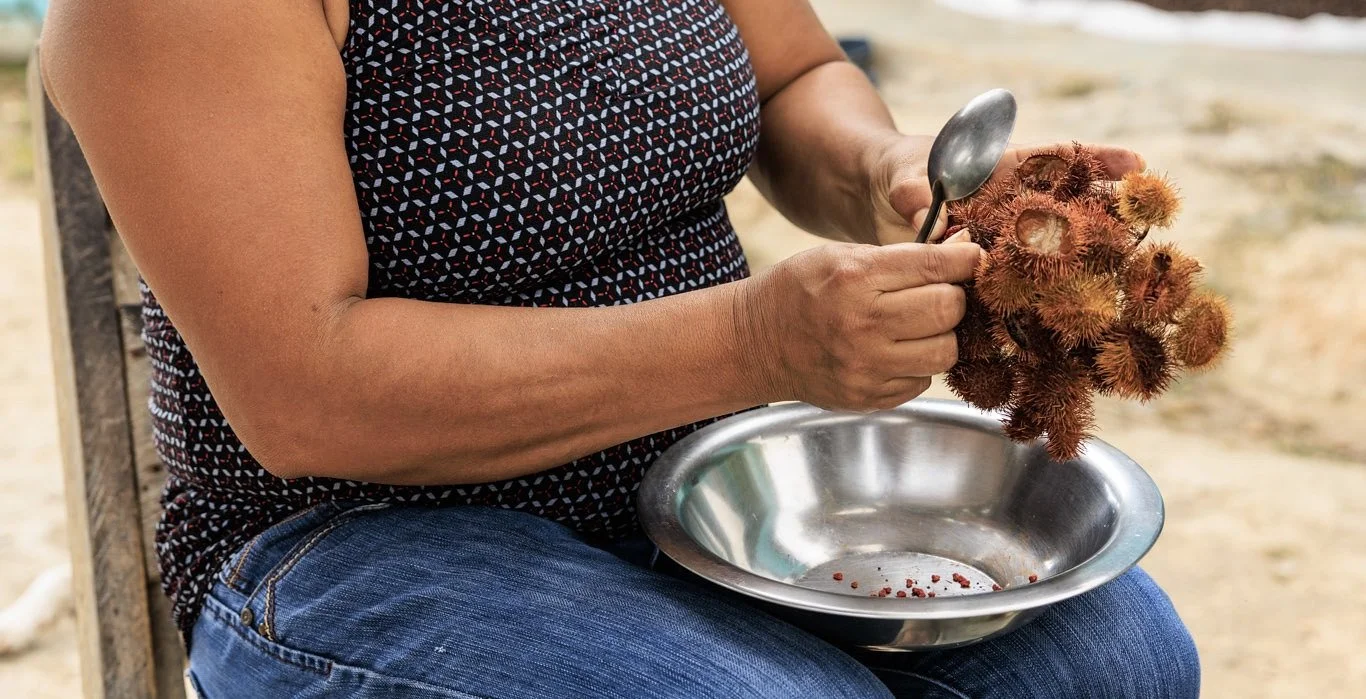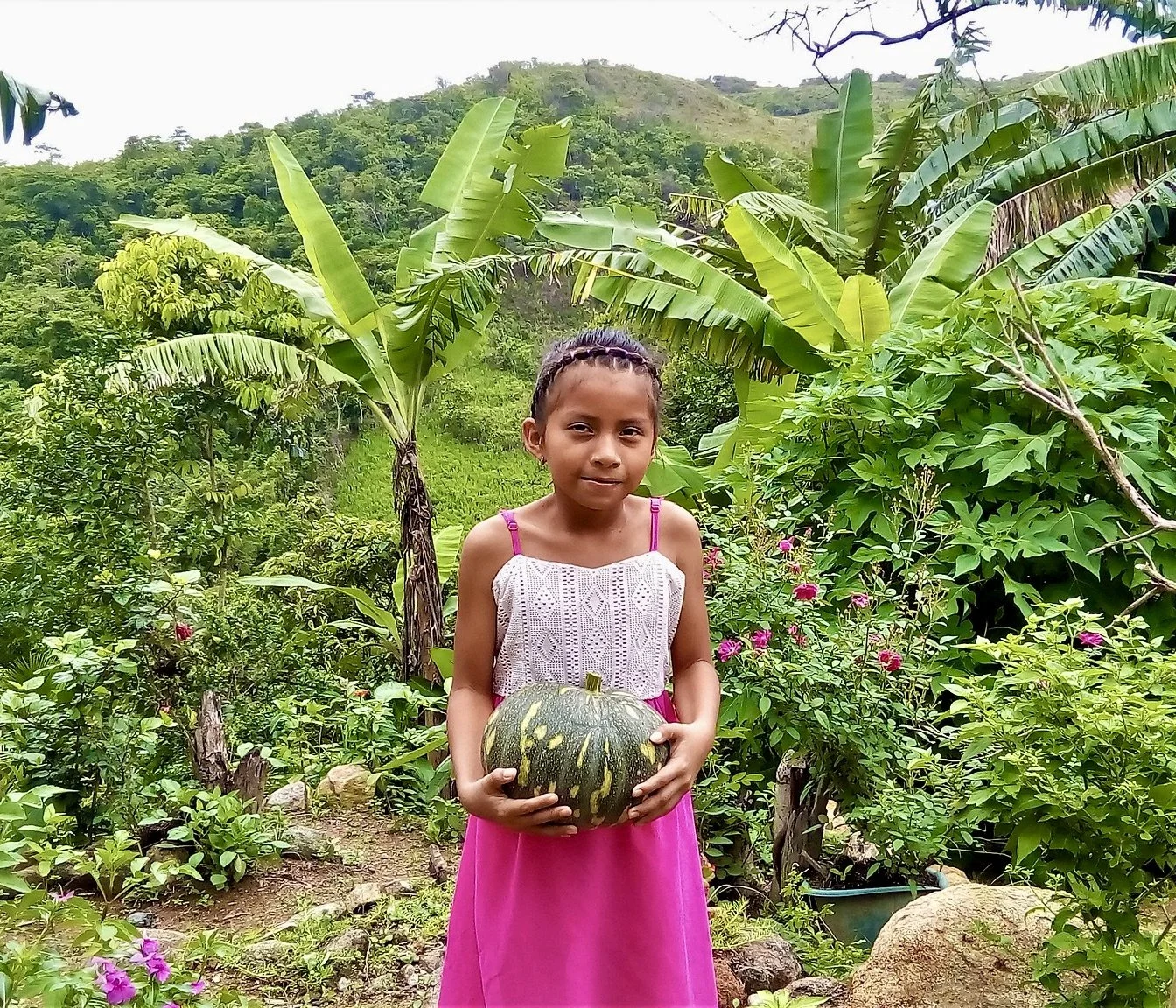Small-scale family farmers often face challenges such as limited access to capital, labor, or land, yet they can still build thriving businesses. These farmers don’t need to compete directly with larger businesses to succeed when they can make an income by selling to their local communities. Family farmers can develop flourishing businesses while supporting local food systems, food sovereignty, and sustainability.
At Sustainable Harvest International (SHI), we train farmers in the skills they need to build sustainable livelihoods. Farmers see their harvests as a source of nourishment for their families and, with SHI’s small-business training, profitable goods. This dual focus creates community-centered agribusinesses that serve as a model for a healthier, more equitable future.
Sustainable Farming Increases Income
Many family farmers struggle to afford inputs such as chemical fertilizers and pesticides that they have been taught to use, even though the money spent on these takes away from their ability to meet basic needs. These inputs are destructive to the land and water sources they rely on for survival.
Farmers can increase their yields while caring for the land by restoring soil health and adopting agroecological techniques. SHI partner farmers learn to embrace these techniques, such as natural fertilizers and cover cropping, knowing that healthy soil leads to abundant harvests. The surplus food can be sold at local markets, turning farms into reliable sources of income.
SHI-Panama farmers Juan Segura and Elizabeth Rodríguez sell their surplus harvest to the local community.
The Segura family from Panama is a great example of the impact of family businesses on local food systems. During the global pandemic in 2020, when grocery store shelves were empty, the Segura family continued to grow enough food to feed their family and sell locally. Unable to find groceries elsewhere, the community was thankful that the Segura family continued to produce enough to sell during hard times. The family business prospered, providing them with financial stability and inspiring them to keep farming—even their young daughter participated in farm duties!
Daughter of SHI-Panama farmers Juan Segura and Elizabeth Rodríguez helps with farm duties.
Sustainable Farming Reduces Costs
SHI trains farmers to save money by using natural materials for fertilizers and pest control, eliminating the need for costly chemical inputs. Reducing costs gives families more money in their pockets and creates less reliance on external inputs. Sustainable practices that avoid harsh chemicals also improve soil quality, benefiting both farmers and the planet. One such technique SHI teaches farmers is bokashi composting, which creates nutrient-rich fertilizer from materials that would otherwise be discarded—such as crop residues and food waste. Farmers learn to make bokashi using materials readily available on their farms. Once they master bokashi composting, they no longer need to buy synthetic fertilizers that degrade soil quality. By eliminating chemical inputs, farmers save money that can be redirected toward other household necessities.
Members of the Pueblo Nuevo community in Honduras participate in a bokashi composting workshop led by SHI-Honduras field trainers.
Another farmer in Panama, María Gonzáles, illustrates the success of practicing sustainable farming she learned from SHI. Her vegetable garden yields celery, parsley, tomatoes, peppers, cucumbers, and turmeric, saving her family $30 monthly on groceries. María’s agroforestry plot features 102 trees, including coffee, orange, and mahogany, alongside plantains, cassava, and rice. Her family saves money by growing these crops and trading surplus produce for items the family needs. She also reduces costs by feeding her chickens crop byproducts instead of purchasing animal feed. María’s sustainable farming practices have reduced her family’s costs by increasing their access to items they would have otherwise needed to purchase.
SHI-Panama farmer María Gonzáles tends to her crops on her agroforestry farm.
““Before learning from the organization [SHI], we bought large vegetables from a delivery truck without knowing how they were produced. Growing our own has helped us a lot.””
Despite the many hurdles family farmers face, they work tirelessly to maintain their livelihoods. By participating in SHI’s program and embracing agroecological methods, farmers can learn sustainable practices that provide for their families and communities. This is how we build a more sustainable future.












